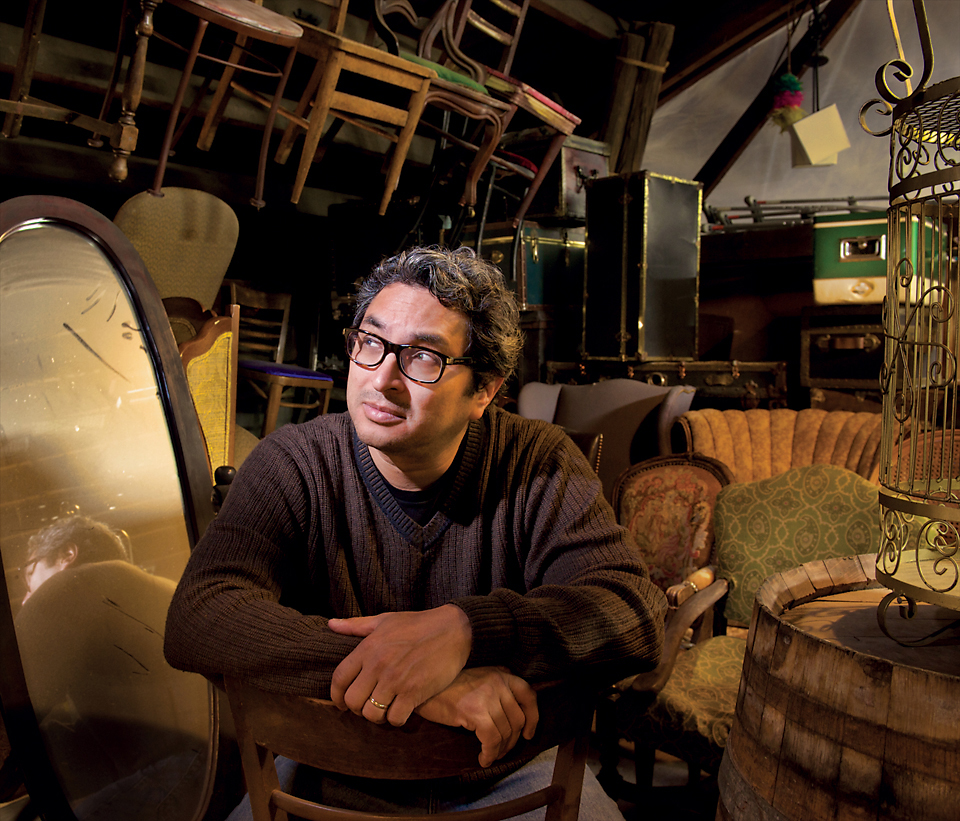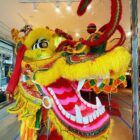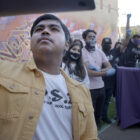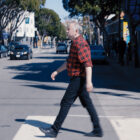Octavio Solis’ critically acclaimed plays have been produced around the country, from the Oregon Shakespeare Festival to San Francisco’s Campo Santo and The Magic Theatre. His most recent work, “The Pastures of Heaven,” based on the Steinbeck novel, is in production until June 27 at California Shakespeare Theater.
The transplanted Texan and Sunset District resident has primarily written about El Paso and the Mexican border, but in recent years he has turned his pen to San Francisco, writing about bars, bandits, poetry-writing wolves and his adopted “city of love.”
(Full disclosure: I worked with Solis in 2002 as assistant director with his play "Dreamlandia" at the Thick Description Theatre Company.)
QUESTION: Despite the recession, you had three world premieres in the last year, and five additional productions.
Yes, last year was my most successful year as a playwright, both financially and artistically.
Q: You first arrived in San Francisco back in 1989 as a Texan actor, theater artist and burgeoning playwright. What was that experience like?
It was a big time to be here because of the big theater scene that was going on … and I was very determined to assert my Texan identity. I said “howdy,” wore my cowboy boots and Texan belt and bolo ties a lot. … I couldn’t figure out who I was, what the city wanted from me, what I needed from the city. The only thing I knew was that I wanted all of the plays that I ever wrote to be performed here, even if they premiered somewhere else. I said, “This has to be my home.”
Q: Your plays about El Paso have garnered a strong following by audiences in the Mission. Why do you think that is?
A lot of the people in the community are newly arrived immigrants or are first generation like me. Or their parents are still undocumented workers. So they have contact with the immigration laws on a very gut level. My characters deal with that. And all of them have a sense of belonging to a different land that a) they have to let go or b) they tend to go back to at some point. They want to belong but they still feel like outsiders.
Q: Even though you say that San Francisco now, after 20 years, finally feels like your artistic home, do you ever still feel like an outsider?
I’ve always felt like an outsider. That’s sort of been my modus operandi. Even when writing plays about the Latino community. And now, I feel like I can no longer say that I am Mexican. … I just feel like an American now. … In the end, I think I am always trying to figure out who I am.
Q: When did you begin writing about San Francisco?
The first play I wrote that took place in San Francisco was “Gibraltar” (2005) … for the Oregon Shakespeare Festival. It takes place in a condo in the Marina. But I never lived in the Marina, I was just imagining what it would be like.
I did work a lot in the Mission, though, and the Mission was getting so gentrified that we were losing our bars. I wanted to do a play about the iconic bars of the Mission, so I wrote “The Ballad of Pancho and Lucy” for Campo Santo (2005). The play was based on the story of this couple that had robbed Mission bars. … I wanted to make it something really happy and full of dancing and singing, and Campo Santo said, “OK, do it, man.”
One of my favorite projects was “Lethe” (2006), which I wrote for Cornerstone Theater. I set that in a senior center here in S.F., and it could only have taken place here. We developed it here … and cast local seniors and caregivers in it.
But I am also working on a new musical about San Francisco. I really wanted to call it “Cloud Atlas,” but there is a novel called that, so I might call it “Cloudlands.” I am doing it with Adam Gwon, a young, bright composer in N.Y. who is really one of the best, and it’s a commission for South Coast Repertory. … It’s kind of a dark tale for a musical, and it’s about misbegotten love in San Francisco.
Q: What does it mean to write about San Francisco?
This city is about love. This city feels like Paris to me. You can fall in love turning a corner. You see lovers everywhere of every ilk. You go to the Castro and see men kissing; you see people of different races kissing; lovers kissing in Dolores Park. Tourists come here to have their anniversaries, honeymoons. … S.F. casts that spell on people …. And, of course, it’s also got its sinister side.
Q: You recently won a GLAAD (Gay & Lesbian Alliance Against Defamation) Media Award for "Lydia’s" portrayal of gay characters in El Paso.
I would never have written “Lydia” if I lived in El Paso or Dallas. I am aware of the issues that LGBT people face every day here. That awareness has to bleed into my work in some respect. It’s there in the new musical, as well … I didn’t want to only depict a heterosexual relationship.
Q: How else does San Francisco influence your work?
The racial diversity of the city. My daughter is half-Mexican and half-white from Kentucky. Almost all of her friends are half-something, half-something else. Asian, black, Latino, American Indian — we’re all part something, part something else. It’s the culture of the future and it’s happening right here in this city. It’s a laboratory … a real mix of people. And this diversity of the city is starting to be reflected in the writing that I do.
It’s a very liberal town and people wear their liberal credentials on their sleeve. In Dallas, I knew my audience. They were really conservative. I knew what buttons to push. Here, I think, “How do I shake these people up?” … I have to try and get under their liberal skin and find out what they’re hiding; there are traces of racism and homophobia and class consciousness that are still very present … no matter what we say or how we stand on this issue or that issue.
In “Pancho and Lucy,” I put these thoughts in the mouth of a puppet who was so racist, so sexist, so vile …
Q: What San Francisco plays would you like to write in the future?
I’d like to write a play about the racist tensions between Latinos and blacks in the city, which are manifested most clearly in prison …. I’d also like to write a play about the mayors of the city — they’re all very colorful, none more colorful than Willie Brown. He really was a dealmaker. He’s a real San Francisco original.
But the next play I want to do is called “The Werewolves of North Beach.” It’s about modern day beat poets. When the moon is full, they turn into poetry wolves and start howling and writing poetry everywhere, and instead of biting people, they start citing haikus in their faces. … It would be a followup to “Pancho and Lucy,” another silly musical.
Q: Local theaters are suffering financially at the moment, or losing their spaces. What does this feel like to you?
I’ve been here 20 years and in that time I have seen theaters come and go. I feel like the climate right now is full of opportunity. Yes, I think that theater companies and arts organizations are affected by this recession, just like everyone else.
But they’ve always been in a state of recession. They’re probably better equipped to deal with it than anyone else. They’re tough little ships and they’ll weather the storm.
Q: Will you stop writing about Texas?
I kind of cherish Texas and, at the same time, revile it. … But I’ll never leave (El Paso) because so much of who I am is still there. It’s a city on the cusp of two eras, two countries, two ways of life, two ways of seeing the world. … I was raised half a mile from the border. … I will go back to El Paso a lot, but I am feeling like now I can also write about San Francisco.
A version of this article was published in the summer 2010 pilot edition of the San Francisco Public Press newspaper. Read select stories online, or buy a copy.










